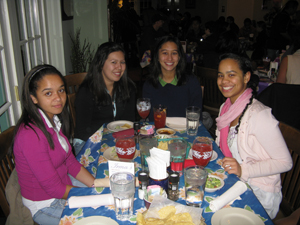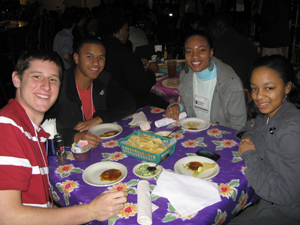Our Work
The ELA provides resources and opportunities that support students at research universities to flourish in the discipline through three working models depending on the size of the university minority community.
Local Model – Where a sufficient critical mass of underrepresented students exists at a university, a local support network encourages students. Local ELA programs provide in-person relationships with on-campus faculty and peers. Go to local chapters for more detailed information.
Regional Model – Where critical mass is not available locally, a network is built through groups of universities within a region. Regional programs provide an opportunity for collaborations that can have a strong impact on several institutions, where individuals can meet and focus on multi-campus programs that give students and faculty the opportunity to exchange ideas and experiences. The ELA catalyzed the New England Computer Science Department Chairs organization, which successfully launched the first New England Undergraduate Computing Symposium (NEUCS) in 2010, and plan another regional symposium some time this year.
National Model – Seeking out and supporting individuals across the country through virtual and in-person experiences, a national network allows any individual student, faculty member, or computing professional across the country to become connected to others as a part of the ELA. The national model is particularly important to isolated minority students.

